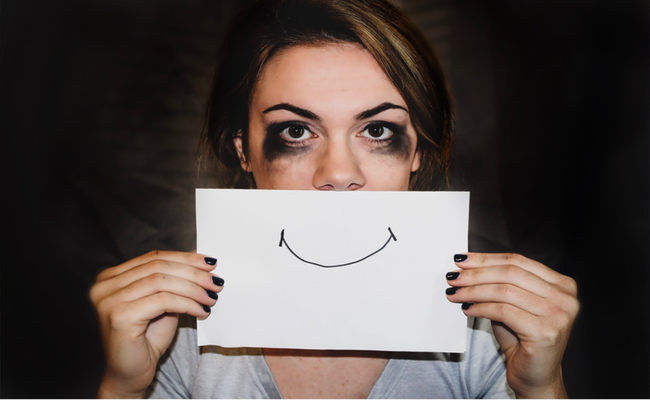
Getting a Medical Marijuana Card for Anxiety in Philadelphia
Yes, it is possible to obtain a medical marijuana card for the treatment of anxiety in Philadelphia. In order to do so, you will need to follow the steps outlined by the Pennsylvania Department of Health's Medical Marijuana Program.
First, you will need to obtain a certification from a practitioner registered with the Medical Marijuana Program. This practitioner will need to determine that you have a qualifying medical condition and that medical marijuana may be an appropriate treatment for you. Anxiety is a qualifying medical condition in Pennsylvania.
Once you have obtained a certification from a registered practitioner, you can then apply for a medical marijuana card through the Medical Marijuana Program. The application process involves submitting certain documents, such as proof of identification and residency, and paying a fee.
If your application is approved, you will receive a medical marijuana card, which will allow you to purchase and use medical marijuana at a licensed dispensary in Pennsylvania. It is important to note that recreational use of marijuana is still illegal in Pennsylvania and possessing marijuana without a medical marijuana card can result in criminal charges.
How Medical Marijuana May Treat Anxiety
There is some evidence to suggest that medical marijuana may be effective in the treatment of anxiety. However, it is important to note that more research is needed to fully understand the potential benefits and risks of using medical marijuana for anxiety.
Medical marijuana contains various compounds, including cannabidiol (CBD) and tetrahydrocannabinol (THC). These compounds can interact with receptors in the body's endocannabinoid system, which is involved in regulating a range of functions, including mood, sleep, and appetite.
Some research suggests that CBD, a non-psychoactive compound found in marijuana, may have anxiolytic (anxiety-reducing) effects. In a small study published in the Journal of Psychopharmacology, for example, CBD was found to reduce anxiety in people with social anxiety disorder.
THC, the psychoactive compound in marijuana, may also have anxiety-reducing effects. However, it can also cause anxiety in some people, particularly in high doses. It is important to note that the effects of THC can vary significantly depending on the individual and the strain of marijuana used.
It is important to speak with a healthcare provider about the potential risks and benefits of using medical marijuana for anxiety. They can help determine if it is an appropriate treatment option for you and assist with finding a reputable source of medical marijuana if it is determined to be a suitable treatment.
Medical Marijuana Card for Anxiety in Philadelphia
To obtain a medical marijuana card in Philadelphia, you will need to follow the steps outlined by the Pennsylvania Department of Health's Medical Marijuana Program.
First, you will need to obtain a certification from a practitioner registered with the Medical Marijuana Program. This practitioner will need to determine that you have a qualifying medical condition and that medical marijuana may be an appropriate treatment for you. Anxiety is a qualifying medical condition in Pennsylvania.
Once you have obtained a certification from a registered practitioner, you can then apply for a medical marijuana card through the Medical Marijuana Program. The application process involves submitting certain documents, such as proof of identification and residency, and paying a fee.
If your application is approved, you will receive a medical marijuana card, which will allow you to purchase and use medical marijuana at a licensed dispensary in Pennsylvania. It is important to note that recreational use of marijuana is still illegal in Pennsylvania and possessing marijuana without a medical marijuana card can result in criminal charges.
How to Get a Medical Card for Anxiety in Philadelphia
To obtain a medical marijuana card for the treatment of anxiety in Philadelphia, you will need to follow the steps outlined by the Pennsylvania Department of Health's Medical Marijuana Program.
Find a practitioner: You will need to obtain a certification from a practitioner registered with the Medical Marijuana Program. This practitioner will need to determine that you have a qualifying medical condition and that medical marijuana may be an appropriate treatment for you. Anxiety is a qualifying medical condition in Pennsylvania.
Submit an application: Once you have obtained a certification from a registered practitioner, you can then apply for a medical marijuana card through the Medical Marijuana Program. The application process involves submitting certain documents, such as proof of identification and residency, and paying a fee.
Wait for approval: The Medical Marijuana Program will review your application and make a determination on whether to approve your request for a medical marijuana card. This process can take several weeks.
Visit a dispensary: If your application is approved, you will receive a medical marijuana card, which will allow you to purchase and use medical marijuana at a licensed dispensary in Pennsylvania. It is important to note that recreational use of marijuana is still illegal in Pennsylvania and possessing marijuana without a medical marijuana card can result in criminal charges.
What Is Anxiety?
Anxiety is a normal response to stress and can be beneficial in some situations. It can help you stay alert and focused, spur you to action, and motivate you to solve problems. However, when anxiety becomes chronic, it can interfere with your daily life and well-being.
Anxiety is a feeling of worry, nervousness, or unease about something with an uncertain outcome. It is a normal reaction to stress and can be beneficial in some situations. However, when anxiety becomes chronic, it can interfere with daily life and well-being.
Symptoms of anxiety can include:
Feeling restless or on edge
Having difficulty concentrating
Being easily fatigued
Having irritability
Having muscle tension
Difficulty falling or staying asleep
Having difficulty controlling worry
There are several different types of anxiety disorders, including generalized anxiety disorder, panic disorder, social anxiety disorder, and specific phobias. Treatment for anxiety disorders can include medication, therapy, or a combination of both.
Typical Treatment for Anxiety Disorders
There are several treatment options available for anxiety disorders, and the most appropriate treatment plan will depend on the specific needs and circumstances of the individual. Some common treatment options for anxiety disorders include:
Medication: There are several types of medications that can be used to treat anxiety disorders, including selective serotonin reuptake inhibitors (SSRIs), serotonin-norepinephrine reuptake inhibitors (SNRIs), and benzodiazepines. These medications can help reduce symptoms of anxiety, such as panic attacks and excessive worry.
Therapy: Therapy can be an effective treatment for anxiety disorders. Cognitive-behavioral therapy (CBT) is a common form of therapy used to treat anxiety disorders. It helps individuals identify and change negative thought patterns and behaviors that contribute to anxiety.
Lifestyle changes: Making certain lifestyle changes can also help reduce anxiety symptoms. These can include getting regular exercise, getting enough sleep, eating a healthy diet, and limiting caffeine and alcohol consumption.
Complementary and alternative treatments: Some people may find relief from anxiety symptoms with the use of complementary and alternative treatments, such as relaxation techniques (e.g. deep breathing, progressive muscle relaxation), acupuncture, or herbal remedies.
It is important to speak with a healthcare provider to determine the most appropriate treatment plan for your specific needs. They can help you weigh the potential benefits and risks of different treatment options and work with you to develop a treatment plan that is right for you.
The Endocannabinoid System And Anxiety
The endocannabinoid system is a complex system of receptors and molecules found in the brain and throughout the body that is involved in a variety of functions, including mood, sleep, and appetite. It is named after the compounds found in the cannabis plant, which can interact with the system and alter its function.
The endocannabinoid system includes two main types of receptors: cannabinoid receptor 1 (CB1) and cannabinoid receptor 2 (CB2). These receptors are found on the surface of cells and bind with endocannabinoids, which are molecules produced by the body, as well as with phytocannabinoids, which are plant-derived compounds found in marijuana.
There is some evidence to suggest that the endocannabinoid system may be involved in the regulation of anxiety. For example, research has found that the CB1 receptor, which is found in high concentrations in the brain, may play a role in the modulation of anxiety.
Some studies have also suggested that the use of marijuana may have anxiolytic (anxiety-reducing) effects, potentially due to the interaction of the plant's compounds with the endocannabinoid system. However, more research is needed to fully understand the potential benefits and risks of using marijuana for the treatment of anxiety.
Evidence For Medical Marijuana Relieving Anxiety
There is some evidence to suggest that medical marijuana may be effective in reducing anxiety, but more research is needed to fully understand the potential benefits and risks of using marijuana for this purpose.
A few small studies have found that cannabidiol (CBD), a non-psychoactive compound found in marijuana, may have anxiolytic (anxiety-reducing) effects. For example, a studypublished in the Journal of Psychopharmacology found that CBD reduced anxiety in people with social anxiety disorder. Another study published in the Journal of Clinical Psychology found that CBD was effective in reducing anxiety and improving sleep in a group of patients with generalized anxiety disorder.
Tetrahydrocannabinol (THC), the psychoactive compound in marijuana, may also have anxiety-reducing effects. However, it can also cause anxiety in some people, particularly in high doses. The effects of THC can vary significantly depending on the individual and the strain of marijuana used.
It is important to note that the studies on the use of marijuana for the treatment of anxiety have been small and have had mixed results. More research is needed to fully understand the potential benefits and risks of using marijuana for anxiety. It is always important to speak with a healthcare provider before using marijuana for the treatment of any medical condition.
Best Marijuana Strains For Anxiety
There is no one "best" marijuana strain for anxiety, as the effects of different strains can vary significantly depending on the individual. Some people may find relief from anxiety symptoms with the use of certain strains, while others may not experience any benefits or may find that their symptoms are exacerbated.
It is also important to note that the effects of marijuana can vary significantly depending on the individual and the specific strain used. Some strains may have higher levels of cannabidiol (CBD) and lower levels of tetrahydrocannabinol (THC), while others may have higher levels of THC and lower levels of CBD.
The best way to determine which marijuana strain may be most effective for anxiety is to speak with a healthcare provider or a knowledgeable budtender at a licensed dispensary. They can help you choose a strain that may be suitable for your specific needs and help you understand the potential risks and benefits of different strains.
It is also important to note that the use of marijuana for the treatment of anxiety should be done under the guidance of a healthcare provider. They can help determine if it is an appropriate treatment option for you and assist with finding a reputable source of marijuana if it is determined to be a suitable treatment.
What anxiety disorders qualify for medical marijuana in Philadelphia
In Philadelphia, anxiety disorders are among the qualifying conditions for the use of medical marijuana. In order to qualify for the Pennsylvania Medical Marijuana Program, you must have a serious medical condition and obtain a certification from a practitioner registered with the Medical Marijuana Program.
Anxiety disorders that may qualify you for the Pennsylvania Medical Marijuana Program include:
Generalized anxiety disorder
Panic disorder
Social anxiety disorder
Specific phobias
It is important to note that the decision to use medical marijuana as a treatment for an anxiety disorder is one that should be made in consultation with a healthcare provider. They can help determine if medical marijuana is an appropriate treatment option for you and assist with the certification process if it is determined to be a suitable treatment.



.png)